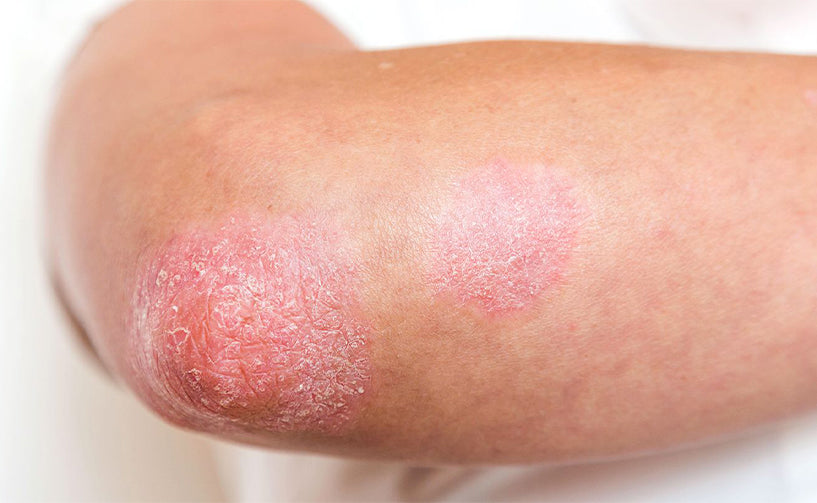Psoriasis is not just a temporary skin ailment, in fact it is a skin disorder linked with chronic inflammation. Psoriasis is an autoimmune disorder and can range from mild to severe. It is not curable but treatment options are available to manage the disease.
Psoriasis is an inherited and non-contagious disease related to abnormality in the immune system. It causes scaly and flaky skin due to quick multiplication of skin cells which get activated by inflammatory chemicals produced by T-lymphocyte cells, resulting in plaques. Psoriasis commonly affects the skin of the elbows, knees, arms, legs and scalp. Itching, redness and scaling plaques are the main symptoms. The disease is controllable but not curable and may have periodic episodes i.e. it gets better (clear skin) suddenly or worsens spontaneously and may get triggered by certain environmental factors.
Different Types of Psoriasis:
1. Guttate psoriasis where small red patches appear on your upper arms, thighs and scalp and is present in less than 2% cases.
2. Plaque psoriasis, the most common type which causes scaling
3. Inverse psoriasis which causes red areas in armpits, groin etc. without scaling
4. Pustular psoriasis, which is very uncommon and causes pus filled bumps
5. Erythrodermic which causes a burnt like appearance, burning sensation, itching to the skin and is the most severe
6. Nail psoriasis which causes changes in nails and is common in people having psoriatic arthritis
7. Psoriatic Arthritis is where you have both psoriasis and arthritis
Do’s
- Expose your skin to the sun often
- Apply a soothing moisturizer over the affected area
- Eat a healthy diet
- Include Vitamin D in your diet
- Use supplements with Turmeric and curcumin as they are anti-inflammatory in nature
Don’ts
- Don’t stress and also don’t ignore the condition
- Avoid triggers that can cause a flare up
- Don’t give up and be patient
- Don’t use over the counter pills as these have harsh side effects






